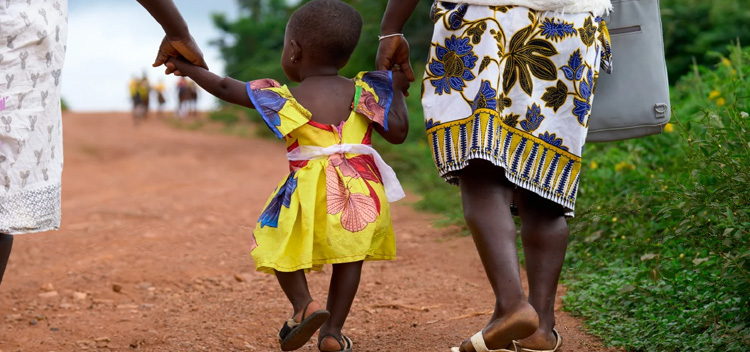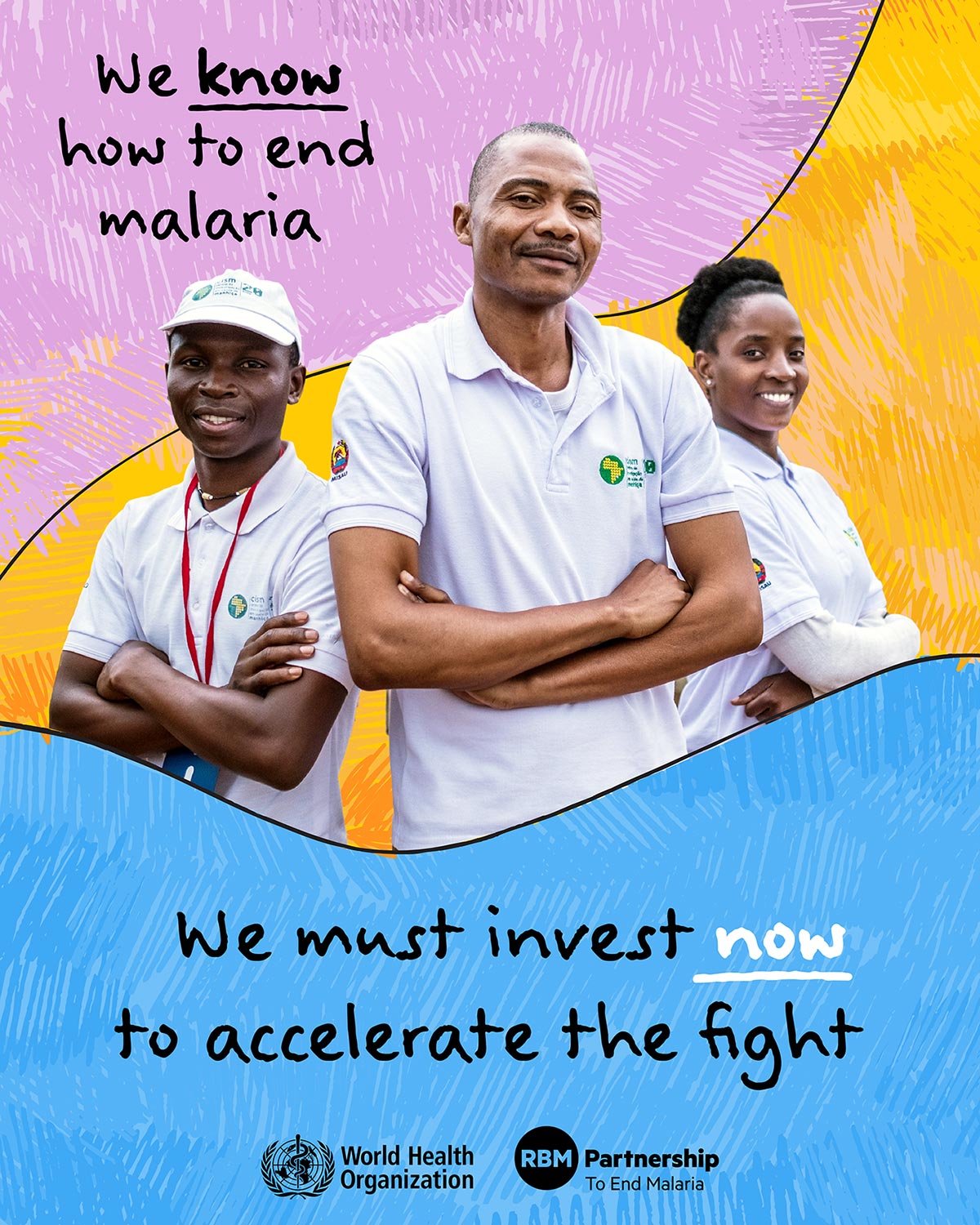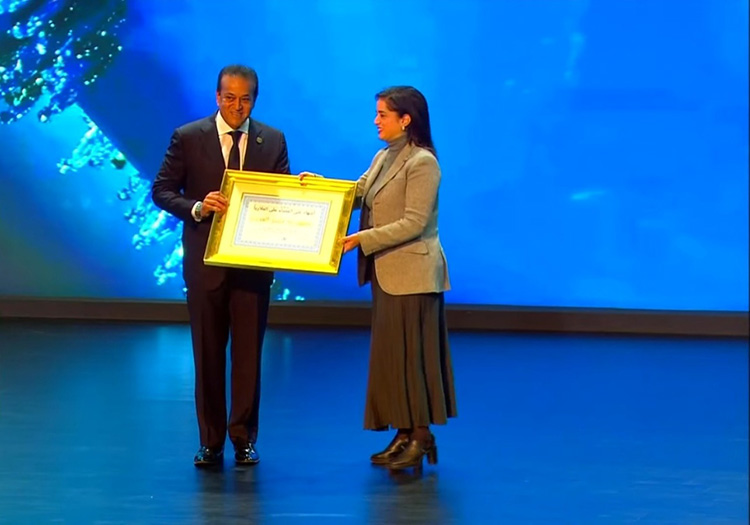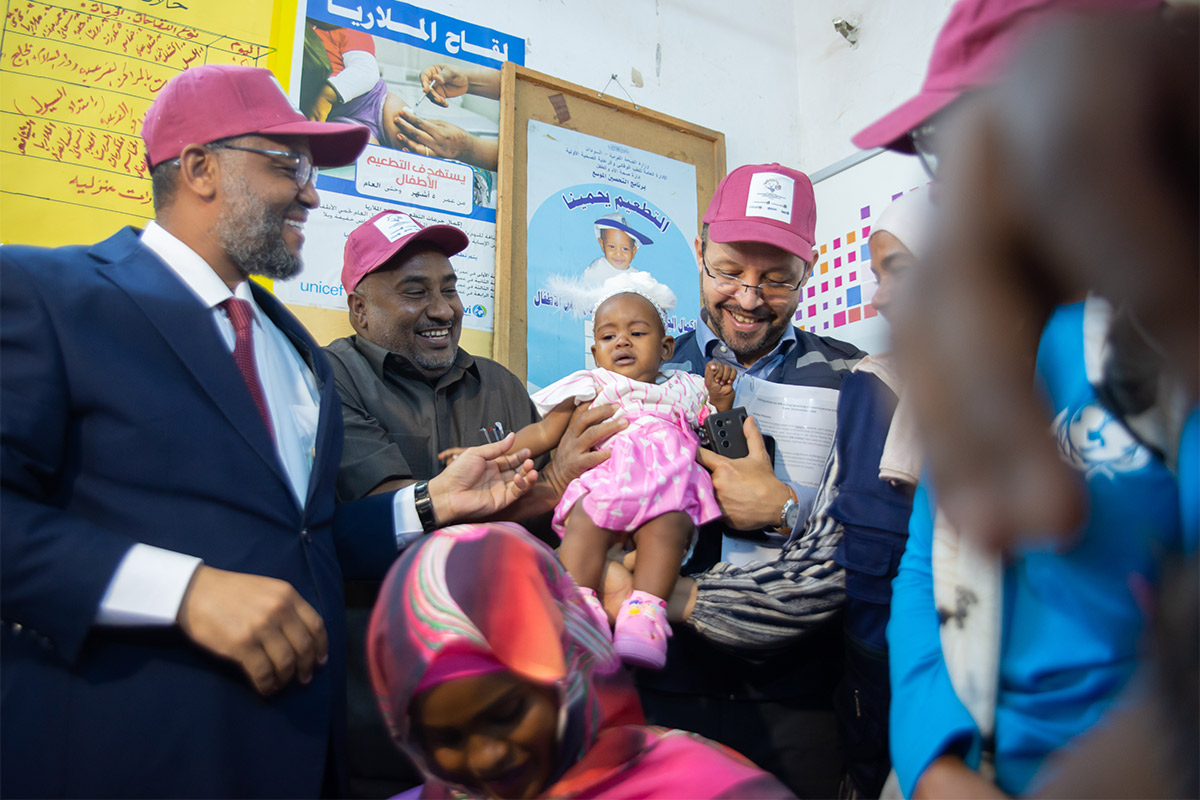
World Malaria Day 2025
Malaria ends with us: reinvest, reimagine, reignite
World Malaria Day 2025 focuses on ending malaria through collective efforts by all stakeholders. Under the theme Malaria ends with us: reinvest, reimagine, reignite, this year’s campaign aims to:
re-energize efforts at all levels, from global policy to community action, to accelerate progress towards malaria elimination;
advocate for increased investment in malaria control and elimination programmes, including through stepped-up domestic financing and successful replenishment of the Global Fund and Gavi;
promote innovative strategies and approaches to tackle evolving challenges; and
prioritize country ownership, actively engage communities and implement data-driven strategies.
3
In 2024, Egypt became the third country in the Eastern Mediterranean Region to be WHO certified malaria-free, following the United Arab Emirates in 2007 and Morocco in 2010.
263 million
In 2023, there were an estimated 263 million new malaria cases across 83 countries worldwide, with 10.2 million estimated malaria cases in the Eastern Mediterranean Region.
2.2 billion
Since 2000, malaria control efforts have helped prevent 2.2 billion cases and 12.7 million deaths worldwide.
Key messages
Malaria cannot be tackled in isolation. Ending malaria will strengthen health and socioeconomic systems globally, and the reverse is also true – strengthening health and socioeconomic systems will establish the platform needed to eliminate malaria.
More and more countries have been making malaria control and elimination a national priority. Joining the Big Push against malaria is an important step towards elimination.
 Achieving malaria elimination goals requires increased political commitment and funding. In 2023, global malaria funding reached US$ 4 billion, well short of the US$ 8.3 billion target. Enhanced investment in surveillance systems and data-driven interventions is crucial to address emerging challenges and ensure equitable access to malaria prevention and treatment services.
Achieving malaria elimination goals requires increased political commitment and funding. In 2023, global malaria funding reached US$ 4 billion, well short of the US$ 8.3 billion target. Enhanced investment in surveillance systems and data-driven interventions is crucial to address emerging challenges and ensure equitable access to malaria prevention and treatment services.
The Eastern Mediterranean Region has seen a significant increase in malaria incidence, with a 57% rise since 2021, reaching 17.9 cases per 1000 population at risk in 2023. The surge is largely attributed to outbreaks in countries like Pakistan since 2022, and to conflict and unstable security situations in Sudan and Yemen.
As of March 2025, malaria vaccines were reaching children in 18 countries in Africa, with further introductions and scale-ups expected. Wider deployment of vaccines is expected to save tens of thousands of young lives each year. To maximize impact, vaccines should be deployed alongside other WHO-recommended malaria control tools.
Sudan became the first country in the Region to introduce the malaria vaccine into its routine immunization programme, a significant step in expanding malaria prevention tools in the Region.
Egypt, Africa’s third most populous country, achieved WHO malaria-free certification in 2024, a notable milestone for the Region that underscores the significance of sustained political commitment to eliminate malaria.
Achievements in the Eastern Mediterranean Region
Egypt is certified malaria-free by WHO
 In October 2024, the World Health Organization (WHO) certified Egypt as malaria-free, a significant public health milestone for a country with more than 100 million inhabitants. Malaria has been detected in Egypt as early as 4000 B.C., with genetic markers of the disease identified in the mummies of figures such as Tutankhamun.
In October 2024, the World Health Organization (WHO) certified Egypt as malaria-free, a significant public health milestone for a country with more than 100 million inhabitants. Malaria has been detected in Egypt as early as 4000 B.C., with genetic markers of the disease identified in the mummies of figures such as Tutankhamun.
Egypt is the third country to be awarded malaria-free certification in the Region, following the United Arab Emirates in 2007, and Morocco in 2010. Globally, 44 countries and 1 territory have reached this milestone.
Sudan rolls out malaria vaccines
 In November 2024, Sudan’s Federal Ministry of Health, in partnership with the World Health Organization (WHO), the United Nations Children’s Fund (UNICEF), and Gavi, the Vaccine Alliance, rolled out malaria vaccines for the first time in the country. The malaria vaccine aims to protect children aged 5–12 months in high-burden states, including 15 localities in Gedaref and Blue Nile. In the first phase, 148 000 children are being targeted, with plans to expand coverage to 1.3 million children in 134 localities by the end of 2026.
In November 2024, Sudan’s Federal Ministry of Health, in partnership with the World Health Organization (WHO), the United Nations Children’s Fund (UNICEF), and Gavi, the Vaccine Alliance, rolled out malaria vaccines for the first time in the country. The malaria vaccine aims to protect children aged 5–12 months in high-burden states, including 15 localities in Gedaref and Blue Nile. In the first phase, 148 000 children are being targeted, with plans to expand coverage to 1.3 million children in 134 localities by the end of 2026.
Despite enormous challenges, Sudan is among 18 African countries, and the first in the Eastern Mediterranean Region, to introduce the malaria vaccine, a remarkable achievement in a country grappling with ongoing conflict and the world’s largest humanitarian crisis. The introduction of the vaccine amid widespread displacement, collapsing health infrastructure and limited access to basic health services testifies to the resilience of Sudan’s health workers and underlines the urgent need for continued international support.
KSrelief funding for malaria control in Yemen
 At the 4th Riyadh International Humanitarian Forum, WHO and King Salman Humanitarian Aid & Relief Centre (KSrelief) signed new agreements to tackle urgent health challenges, including the allocation of US$ 12 million to support malaria prevention efforts in Yemen. The funding will help protect lives, strengthen Yemen’s health system and support the response to health challenges caused by prolonged conflict in the country.
At the 4th Riyadh International Humanitarian Forum, WHO and King Salman Humanitarian Aid & Relief Centre (KSrelief) signed new agreements to tackle urgent health challenges, including the allocation of US$ 12 million to support malaria prevention efforts in Yemen. The funding will help protect lives, strengthen Yemen’s health system and support the response to health challenges caused by prolonged conflict in the country.
Djibouti adopts innovative solutions
In May 2024, Djibouti adopted an innovative approach to the fight against malaria with the pilot release of genetically modified Anopheles stephensi mosquitoes to combat the urban malaria threat spreading across Africa.
Related link
WHO and Pakistan warn climate change is worsening malaria amid 2 million annual cases








